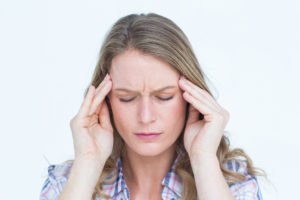 Meniere’s disease is a disorder of the inner ear characterized by:
Meniere’s disease is a disorder of the inner ear characterized by:
- Tinnitus – a ringing, buzzing, or hissing noise in the inner ear
- Vertigo – the sensation you or your surroundings are spinning
- Temporary hearing loss which may become permanent if not cared for
- A feeling of congestion or fullness in the inner ear
Usually, only one ear is impacted with Meniere’s disease. Vertigo may happen all of a sudden or following a short period of muffled hearing or tinnitus. You may have one attack of dizziness and nothing again for a long time, or you may have many attacks close together over a number of days. Drop attacks may also occur. These are episodes of vertigo so severe that you may lose your balance and fall to the ground. It may feel as if someone has pushed you from behind.
Anyone can develop Meniere’s disease, but it is seen most often in people in the age range of 40 to 60 years. According to the NIDCD (the National Institute on Deafness and Other Communication Disorders), 615,000 cases of Meniere’s disease are treated each year. In addition, 45,500 new cases are being diagnosed yearly.
What’s Behind Meniere’s Disease?
The exact reason Meniere’s disease happens is still under debate. One of the most widely accepted theories is it is due to the build-up of fluid within the inner ear. However, this does not occur in every case of Meniere’s disease. Let’s take a look at what happens to those with fluid build-up.
The labyrinth is made up of compartments of the inner ear containing the organs of balance (the semicircular canals and otolithic organs) and those of hearing (the cochlea). It consists of 2 sections – the membranous labyrinth and the bony labyrinth. The membranous labyrinth contains a fluid called endolymph that causes the balance organs to detect movement. These receptors then send signals to the brain about the body’s position. In the cochlea, fluid is compressed as it responds to sound vibrations, and the sensory cells send these signals to the brain. When you have Meniere’s disease, this build-up of fluid gets in the way of normal function and hearing. This causes vertigo and other symptoms of Meniere’s disease.
So, what about those with Meniere’s disease who do not have the excess build-up of fluid? Obviously, in these cases, hydrops (excess fluid build-up) is not the cause of symptoms. It has recently been discovered through research that whiplash and other head and neck injuries may be the reason behind Meniere’s disease.
To learn more about the connection between head and neck injuries and vertigo download our complimentary e-book by clicking the image below.
When you seek the care of your family physician for Meniere’s disease, it is likely he has little knowledge about the condition because it is so rare. He will usually rule out all other similar conditions in order to give you a proper diagnosis. He may consult different medical books, such as the Merck Manual. It is important, however, to recognize the Merck manual has not included whiplash and head or neck injuries to the list of possible causes for this condition. It does include head or ear trauma as a potential risk factor. This can make it really hard on the doctor trying to make a diagnosis because what he or she may be looking into your patient history for is an accident or injury that happened over 15 years ago. Why so long ago?
The research pointing to a misalignment as a possible cause for Meniere’s disease indicates that this is about the amount of time it takes for a lesion to grow on the eustachian tube and impact your hearing and balance. Therefore, doctors need to dig deep into a patient’s history including any accidents they may have endured in the past, especially any including head trauma such as whiplash, a sporting injury, or even a trip and fall that jarred the head. Any of these types of accidents could cause a misalignment to the top bones of the upper cervical spine, particularly the C1 (atlas) or C2 (axis) bones.
The lesion growing on the eustachian tube over time can have a couple of different effects. It can hinder the inner ear from draining fluid properly and, therefore, be the reason the fluid is building up. Or, it can be a hindrance to the proper function of the workings of the inner ear. This shows just how vital it is to visit an upper cervical chiropractor as soon as you suspect you may have done some injury to your neck. The sooner the problem is cared for, the better chance you have to avoid the complications of Meniere’s disease. So, the question becomes, what if you already have Meniere’s disease – is there anything that can help it?
Meniere’s Disease Vertigo Relief Waynesville OH
Proof that Upper Cervical Chiropractic Helps Meniere’s Disease
Recently, Dr. Michael Burcon looked into the effects that upper cervical specific chiropractic had on 139 Meniere’s disease patients. After each of these patients received specific adjustments by an upper cervical chiropractor, 136 reported an improvement in or complete disappearance of their symptoms. This means 97% of those in the study saw positive results! Checking in again with these participants two years later, they reported their symptoms went from an average of 8.5 (with 10 being the worst) down to a 1.4. It is important to note that all of these 139 participants had undergone some sort of trauma before the onset of their Meniere’s symptoms.
Here at Thrive Chiropractic in Waynesville, Ohio, we help our Meniere’s patients by using a method that is both gentle and effective vertigo relief Waynesville. We encourage the bones of the neck to move back into place more naturally than cracking or forcing the spine. This has brought relief to many Meniere’s patients.
To schedule a complimentary consultation call our Waynesville, OH office at 513-897-0117 You can also click the button below.
if you are outside of the local area you can find an Upper Cervical Doctor near you at www.uppercervicalawareness.com.


